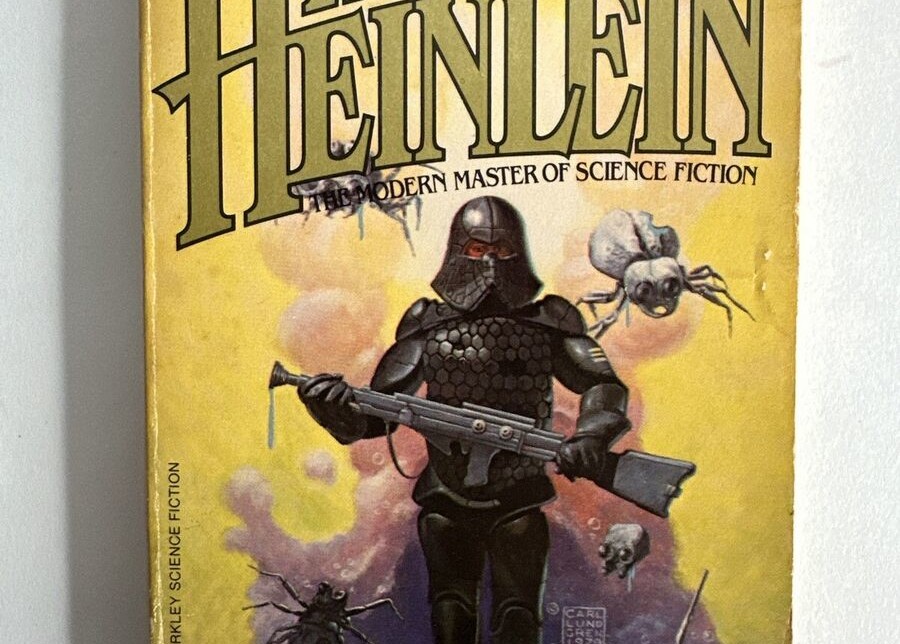Book Review: Starship Troopers

These days, many people know Starship Troopers from the 1997 movie. However, that movie satirized the famous science fiction Hugo award winner written by Robert Heinlein, a naval engineer. This space tale is known for its militarism and, to some critics, repugnant due to its harsh view on society, human nature, and life. I found its social commentary thought provoking, even if Heinlein’s military background is evident throughout the novel.
Voting, its requirements and consequences, is part of the novel’s philosophical discourse. Only veterans are allowed to vote in Heinlein’s society because only veterans are citizens. The protagonist, who joins the military against his wealthy family’s wishes at the beginning of the book, is told by his father that voting is “vain and useless,” and he wishes his son would go into business instead. Heinlein writes that people who are given the right to vote instead of earning it don’t value things, and that’s one reason why democracy failed (America in this novel has already fallen). The best things in life are beyond money and paid for with agony, sweat, or with life itself. Better to have someone who decided to enlist to gain the right to vote than to merely give the right to those who won’t appreciate voting’s consequences. At one point Heinlein describes civilians as “beans,” an example of why critics criticize Heinlein’s work as adulating militarism.
Punishment is another topic Heinlein discusses. There’s no mental insanity defense to crime, “We shoot mad dogs, don’t we?” opines one teacher. Heinlein writes that children not being punished led to democracy’s failure because schools turned into violent places and juvenile offender’s names not published to avoid shame. In Heinlein’s opinion, pain is evolution and life’s main survival technique, and punishment should be unusual lest it serve no purpose.
Worth mentioning is Heinlein idea of a “cultivated conscious.” He writes that at birth humans have no moral instinct. Morality must be learned and the basis of all morality is duty. At one point Heinlein criticizes Plato’s Republic, so Starship Troopers has plenty to keep a reader pondering about, much of it deeper than expected from the book’s cover or that satirical 1997 movie.
Starship Troopers plot is rather straightforward. The character development is limited and few characters stand out except to serve to illustrate Heinlein scrutinizing paradigms. Don’t expect memorable dialogue, though do expect interesting conversations. A reader gains a better appreciation of the physiological and psychological requirements necessary to train and survive combat, and the mindset Heinlein thought necessary to those who serve their country through armed combat. One deserved accolade is that Starship Troopers was the first story to describe a human combat suit, called the Marauder Suit, that led to countless usages in sci-fi, like Metroid, Halo, Half-Life, and Fallout. The book is short with simple prose and easy diction. Check it out if you want an old school viewpoint on matters you may not have thought about and you have a flare for space combat.
